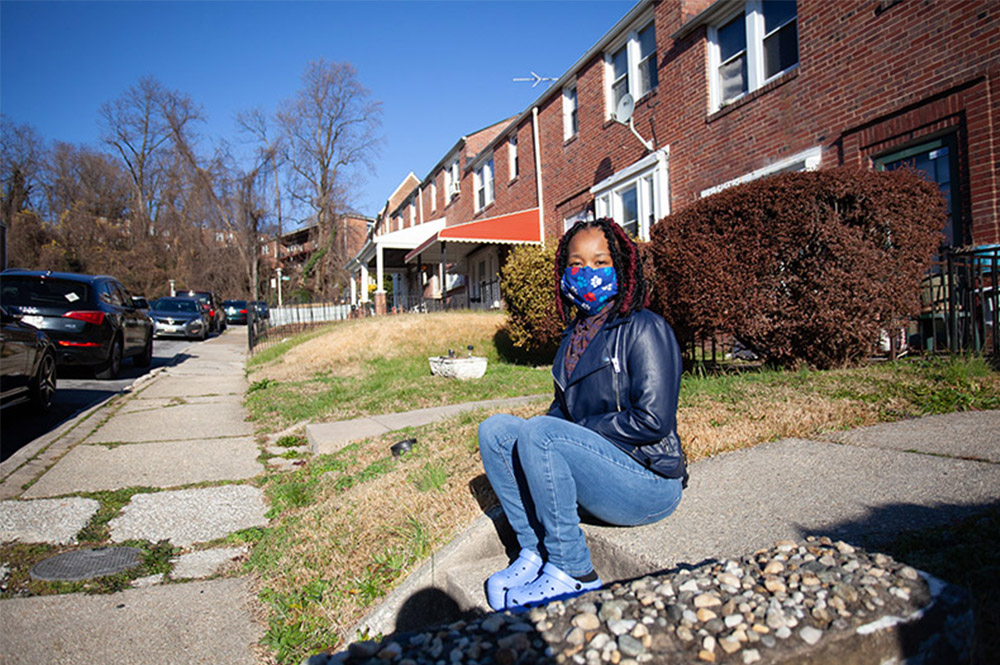



In Baltimore City, the impact of deeply entrenched structural factors, including racism and classism, has shaped the landscape of health, civic, and economic inequities among the city’s predominantly Black neighborhoods compared to its predominantly white neighborhoods. Baltimore’s communities of color are more likely to experience negative social determinants of health such as poverty, food insecurity, housing instability, limited access to health care, and an underfunded public transit system. The extent and endurance of the resulting health disparities require local solutions that are person- and family-centered, culturally relevant, and responsive to the needs of historically marginalized communities.
Community health worker programs are a cost-effective solution that can help mitigate the impact of social determinants of health. Community health workers (CHWs) are frontline public health personnel who share common attributes with, and/or have a nuanced understanding of, the communities they serve. Their lived experiences are central to their ability to link members of underserved communities with needed health care and social services. And, their interpersonal skills allow them to provide emotional support and create a bridge between the communities they serve and the medical, public health, and social service organizations they work for. CHW programs improve health outcomes across a number of acute and chronic diseases.
In this report, Chidinma A. Ibe, PhD, and Obie McNair, MPH, of the Johns Hopkins Schools of Medicine and Public Health, respectively, review the challenges to and opportunities for scaling up CHW programs in Baltimore City. The report identifies strategies for funding and compensation from across the country, clarifies how statewide policies impact financial sustainability, examines other contextual factors that influence the CHW workforce in Baltimore City, and proposes a strategic roadmap that will prepare the state and city to support the long-term financial viability of the CHW model.
Patchwork funding poses a major barrier to the broader adoption of CHW programs in community-based, medical, and public health settings. The roadmap to generating sustainable funding for CHWs’ services is composed of four main recommendations, bearing in mind that CHWs must be at the helm of these efforts:
Baltimore City is well positioned to serve as a model of how best to support members of the CHW workforce who live and work in urban areas. Shoring up key aspects of CHWs’ professional development and creating sustainable financing arrangements are central to bolstering this impactful workforce. Investing in CHWs will have important ramifications for reducing health disparities by ameliorating the adverse impact of social determinants of health, improving employment rates, and, ultimately, promoting equity for members of systematically marginalized communities.
Photo courtesy of Jhpiego, used with permission by Baltimore Health Corps.